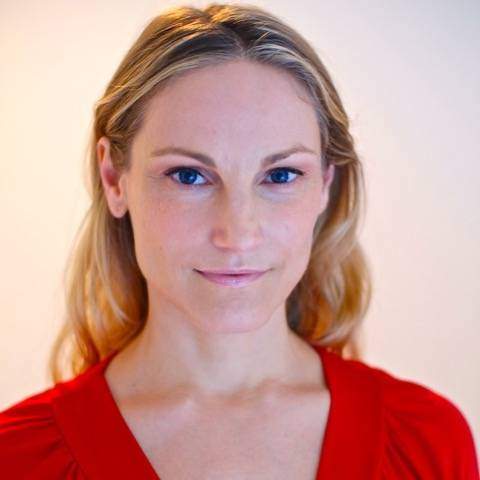Americans love a TV series about crime. This evergreen topic has been a basis for programming almost since the inception of television itself. As ubiquitous and popular as the CSI franchise has been in America, Europe has its own mainstays of the genre. Germany’s K11 is the type of television production whose greatness is evident in the fact that new generations “grow into” the show and embrace it as those before them. Head Writer Camilla Sauer has been a catalyst for the most recent success of this beloved crime program.
For her part, Sauer credits the show with inspiring her to delve into worlds unknown to her and supporting her creativity. Camilla’s impressive resume spans numerous categories of the writing industry from international Ad Agencies like Publicis to the Academy Award Winning Wiedemann & Berg Film & TV production.
Brought to K11 by Christoph Knechtel, former CEO of Constantin Entertainment, with whom she has worked on numerous TV programs in the past seventeen years, Camilla is repeating the success she has accomplished for In Gefahr, Schicksale, SOKOFamilie, Meine Klasse, and others in her collaborations with senior producer Jimmy Nears. While K11 shares a genre with many other productions around the world, it has achieved a tone which is decidedly remarkable and unique amongst the din of commonality often so present.

While the nightly news may give the actual facts about crime, the broad brush with which it paints loses the humanity of victims, perpetrators, and investigators. The events behind these stories are a source of interest that goes back as far as the story of homosapiens on Earth. However, it’s not simply the telling of the story but rather how it is told that captures the lasting attention of the public. Likely the most popular and enduring of daily crime shows ever created for German television, K11 is rooted in the quartet of professional crime investigators who delve into these transgressions and unearth the motivations behind them.
The duo of seasoned detective Michael Naseband and his insightful and empathetic partner Alex Reitz delivers a powerful chemistry on camera. Philipp Stehler of Instagram fame and Daniela Stamm are the younger pairing of criminal investigators who round out the cast and further widen the demographic appeal. These four investigators delve into a world that ranges from personal crimes to international child pornography rings. The cases themselves supply the potential for drama but it’s the communication amongst these investigators and those with whom they interact when pursing them that cultivates the show’s special tone.
As Head Writer of K11, the direction of the show is greatly influenced by Camilla Sauer. She finds that travel and interacting one on one with people often provides the unique element of her writing for the show that has been instrumental in its success. Camilla relates, “I’ve met so many different people, from different cultures, with different realities and ‘normalities.’ I’ve heard a lot of beautiful, scary, or just heart-breaking stories, and I’ve lived them, too. I don’t think travelling is necessary to being a good writer but I think it definitely helps to think ‘outside the box’, create interesting characters, and let life itself show you some really crazy stories.”
Interspersed with these personal experiences and characters Camilla brings to the show are inspirations from well-known cases like that of Jeffrey Epstein and serial killer Gilbert Paul Jordan. Explaining her concept of what sets the stories of K11 apart from others, Sauer defines, “I guess truth often is just a version of the person who tells it. Truth is a perspective that is both a matter of who’s experienced it and how.”
K11 is one of the few shows which has stayed in production during the global pandemic of 2020, with the result of further cementing the show’s fanbase. During a time when almost nothing in the world seems the same, this show has seen adjustments as well. Following strict safe and social distancing guidelines to ensure the health of all involved also requires a recalibration of the writing approach.
While camera angles can manifest a closer proximity of the actors and fight scenes can be the result of prestidigitation: physical contact moments like hugs and kisses are verboten. It’s yet another subtle cue that our world is slightly out of kilter. Still, there’s something very cathartic about the stories of K11. Even for someone like Camilla who is at the very inception of these tales, it’s stabilizing. She confesses, “During the lockdown, my work actually helped me to stay positive.
I was able to put my mind on something other than just the virus; I could flee into other worlds, and I had to deliver stories every day. There was no room for going down the rabbit hole of all the ‘what ifs’ in these uncertain times. I am beyond grateful to have been able to work through the pandemic. By going through these times together, and sharing our insecurities, worries, and fears, the virus actually brought the ‘K11 family’ closer together, even in the physical distance.”
Writer: Luigi Paglia